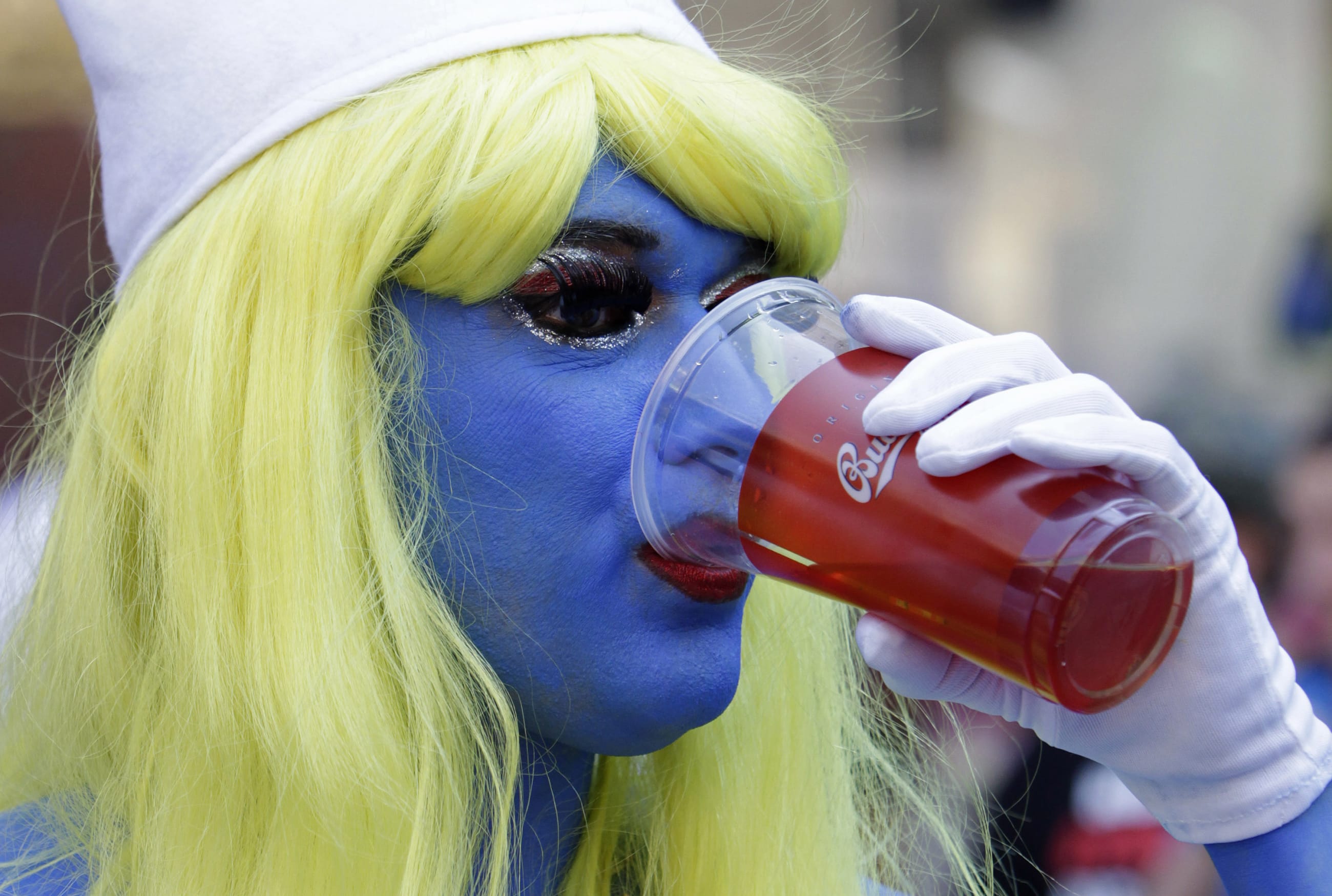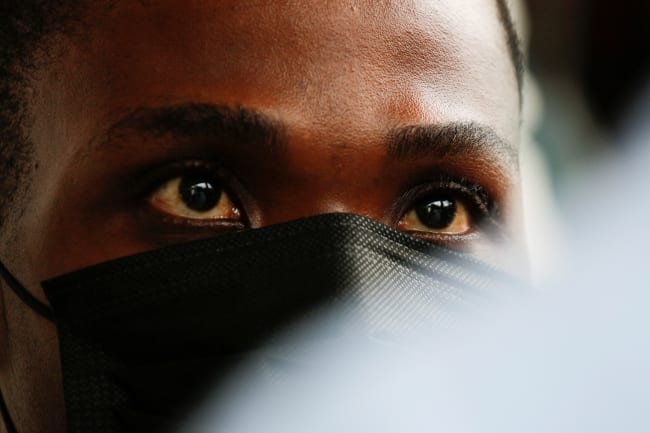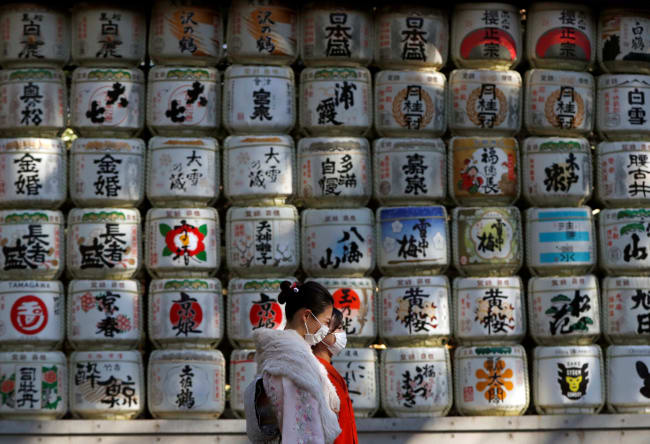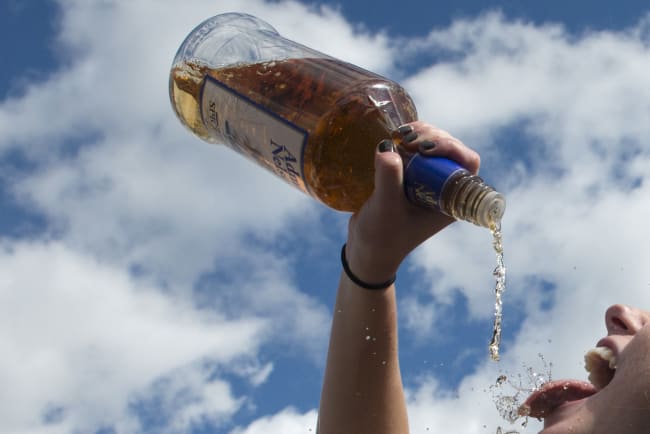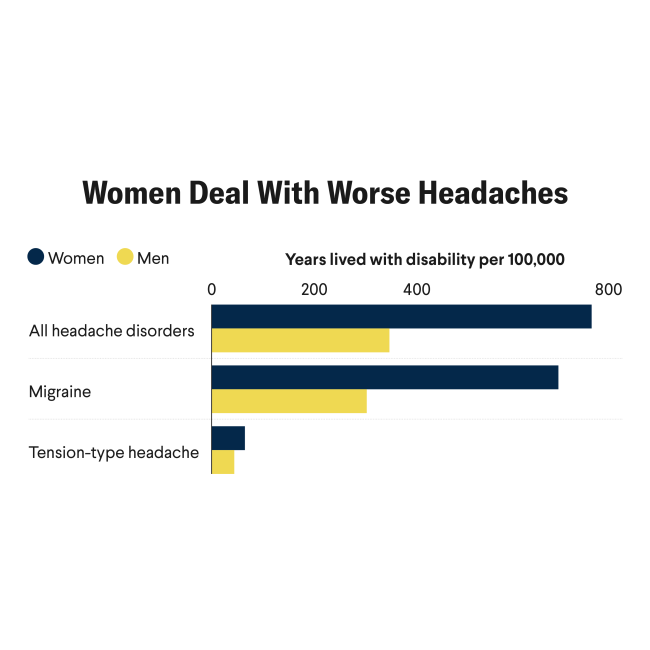In the face of current global political backlashes and the rise of political parties threatening advances on LGBTQ+ rights, it is clear that this Pride month transcends mere festivities. Pride season stands as one of the LGBTQ+ community's most significant symbols of resilience and visibility, echoing the origins of the annual parades born from resistance against various forms of discrimination, violence, and oppression. This Pride season is a moment for the community to not only continue advocating for improved living conditions, but also bring attention to issues that may be harming its members.
Given the significance of Pride season to the LGBTQ+ community, questions inevitably arise every year about corporate practices that look to capitalize on LGBTQ+ rights to promote their brands to a wider audience. Often, these efforts can be seen as insincere attempts to profit from the community without addressing the systemic issues at the heart of Pride festivities.
One group that warrants such scrutiny is the alcohol industry, which has become a major sponsor of Pride marches and parades around the world. In recent years, the Absolut Company, the Campari Group, AB InBev, and other big players have secured their corporate presence during Pride by sponsoring parades or affiliated events. A systematic review conducted in 2018 revealed that 61% of the Pride marches that disclosed their sponsors showed evidence of alcohol industry involvement. Some alcohol companies have come to solidify their longer-term participation through multiyear contracts with certain Pride organizing committees.
One group that warrants such scrutiny is the alcohol industry, which has become a major sponsor of Pride marches and parades around the world
The increasingly sophisticated sponsorship tactics of the alcohol industry during Pride pose a real threat to the health and well-being of the LGBTQ+ community. Research suggests that alcohol industry's sponsorship of Pride, much like the tobacco industry's strategies, is a deliberate attempt to influence patterns of alcohol consumption and induce cravings in a group already at a disproportionately high risk of developing alcohol disorders. A wealth of evidence has shown that, relative to their heterosexual counterparts, members of the LGBTQ+ community are more likely to use alcohol at high-risk levels and experience alcohol-related social, psychological, or physical consequences. Such disparities in alcohol use have been noted to be even more significant for lesbian and bisexual women.
Against such a backdrop, this Pride season calls for the analysis of such tactics not just as LGBTQ+ marketing but also as another instance of corporate disease promotion that should be closely examined. The trend should prompt the public health community to explore the most effective methods for addressing this issue. From a health equity perspective, strong arguments exist for stringent restrictions of alcohol's involvement in Pride due to the risk of harm posed by high-risk drinking patterns in the LGBTQ+ community.
However, herein lies a complexity that the industry is trying to exploit: because Pride parades have become one of the most prominent vehicles for LGBTQ+ advocacy, Big Alcohol's provision of resources to organizing committees could be seen as distinct from its typical sponsorship of sports and cultural events. At the very minimum, the annual parade format is the LGBTQ+ community's vehicle to express its collective identity, campaign for their rights, and other explicit manifestations of protest and dissent in many countries.
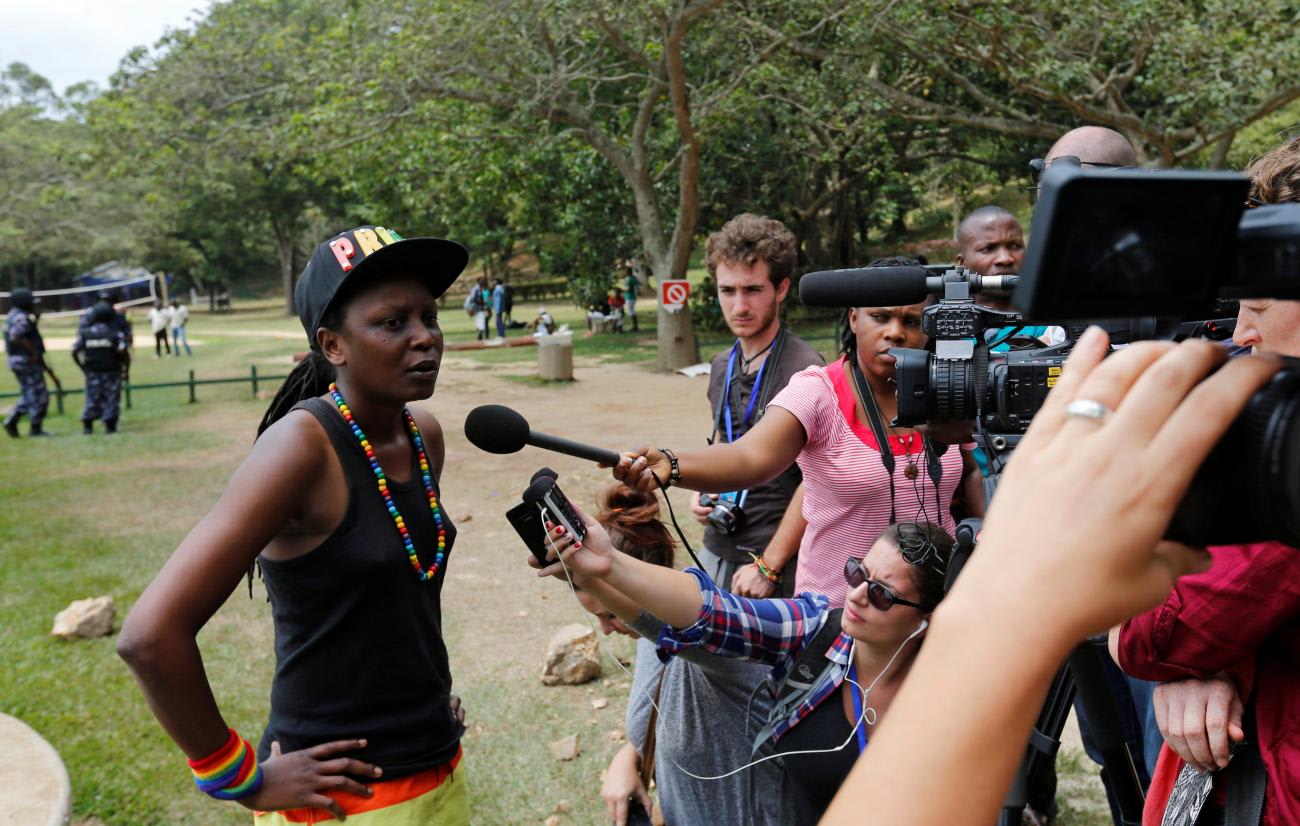
This raises issues surrounding freedom of expression that could pose legal challenges for policy or regulatory initiatives in some countries or jurisdictions if not properly addressed. Moreover, the expressive and political nature of Pride could make top-down approaches to sponsorship deeply unpopular and thus harder to enforce, given that restricting sponsorship might be inordinately expensive for Pride organizers, especially in low- and middle-income countries.
These obstacles, however, are not insurmountable, because various interventions exist to address this form of alcohol marketing while protecting Pride marches.
Following the World Health Organization's guidance, a comprehensive prohibition on alcohol marketing—including sponsorship by any alcohol brand of any event or cause—would be most effective at reducing exposure to alcohol during Pride. Yet achieving this could be politically challenging in the short term given public perceptions of alcohol consumption and the lack of binding regulatory policies at the international level, similar to the Framework Convention on Tobacco Control (FCTC), for alcohol marketing and promotion. Previous experiences with tobacco also show that successful bans need to be accompanied by mechanisms to ensure substitute funding for organizations that lose financial support to allow them to continue operations. Again, this might similarly prove difficult to ensure in many low- to middle-income countries given their resource constraints.
Because comprehensive bans on alcohol sponsorship take time to achieve, other short-term strategies could be implemented to address the issue as stricter regulations are progressively implemented. Some starting points could include measures to explicitly address exposure, such as prohibiting the display of visible logos and branding associated with alcohol brand sponsorships, or requiring posted information or warnings about the risks of alcohol consumption. In the same vein, measures to disincentivize alcohol sponsorship, such as removing tax concessions for sponsorship expenses, could be explored.
Various interventions exist to address this form of alcohol marketing while protecting Pride marches
A significant strategy could involve collaborations between health officials and Pride organizing committees to promote bottom-up or grassroots policy changes around sponsorship, particularly amendments to sponsorship ethics policies that discourage alcohol involvement in Pride events. Although some organizers still explicitly allow for partnerships with alcohol as long they "meet standards set by local government[s] in relation to consumption, advertising, marketing, and age of sale" or generally demonstrate a commitment to the LGBTQ+ community through "tangible measures," these exceptions should be removed because they risk weakening initiatives to reduce alcohol marketing exposure and its associated impacts on alcohol consumption.
As we celebrate this Pride season, it is essential to begin considering the health impacts of Big Alcohol's sponsorship of Pride parades and take both immediate and long-term measures to address the issue. This conversation not only is relevant for alcohol control initiatives, but also could be extended to other industries that market unhealthy commodities during the marches, potentially exacerbating health inequalities and undermining efforts to improve LGBTQ+ health.
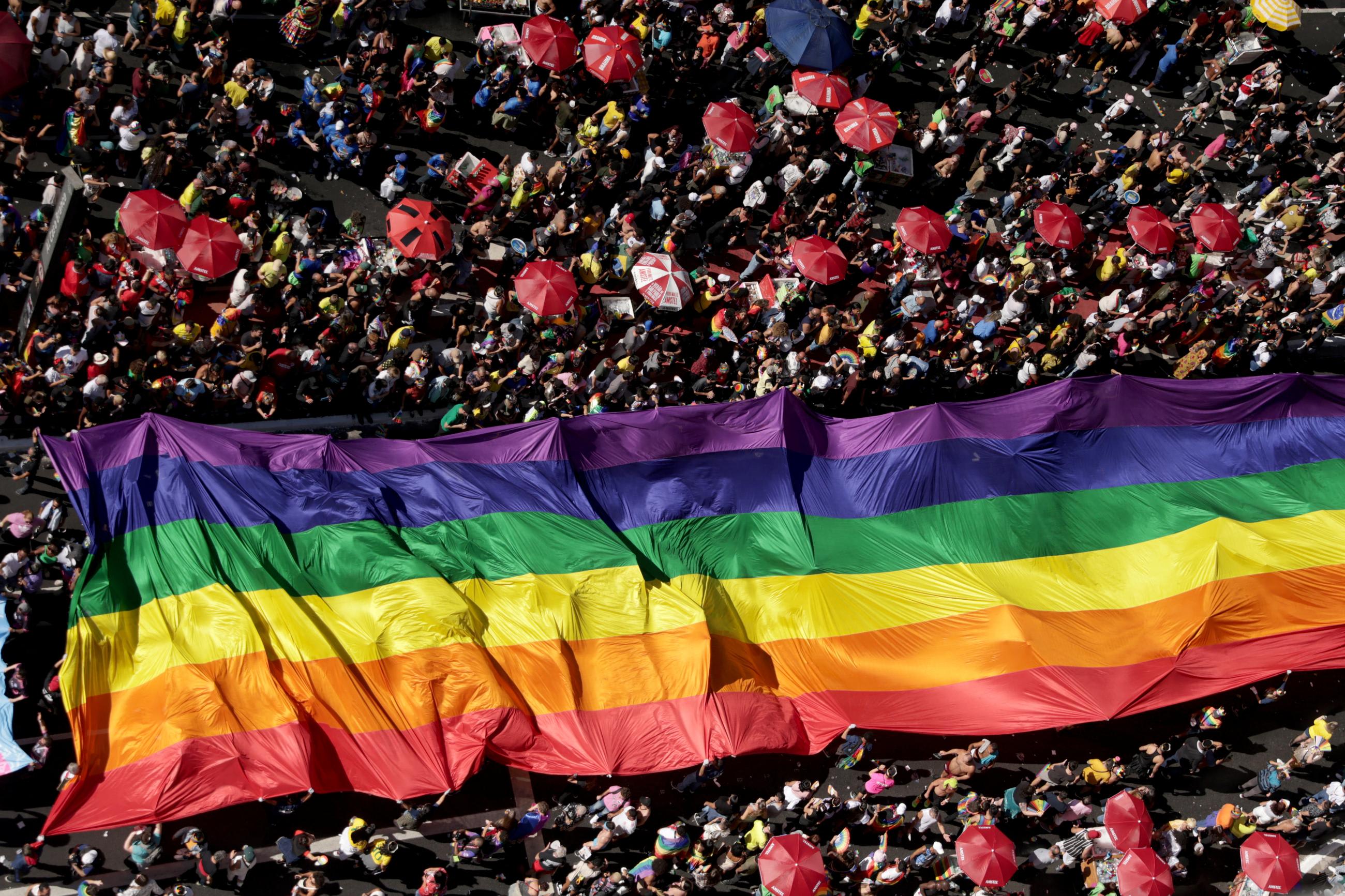
DISCLAIMER: The opinions expressed in this piece do not necessarily reflect those of the other members of the O'Neill Institute.
ACKNOWLEDGEMENTS: I thank Margherita M. Cinà for her valuable insights on this topic and review of earlier versions of this opinion piece.
